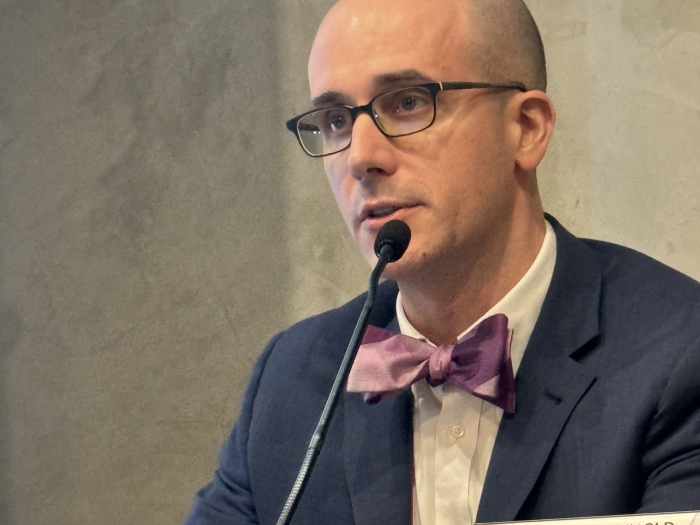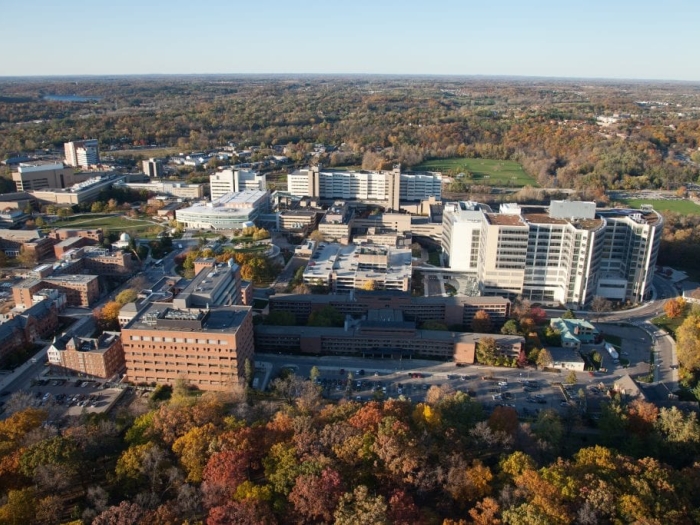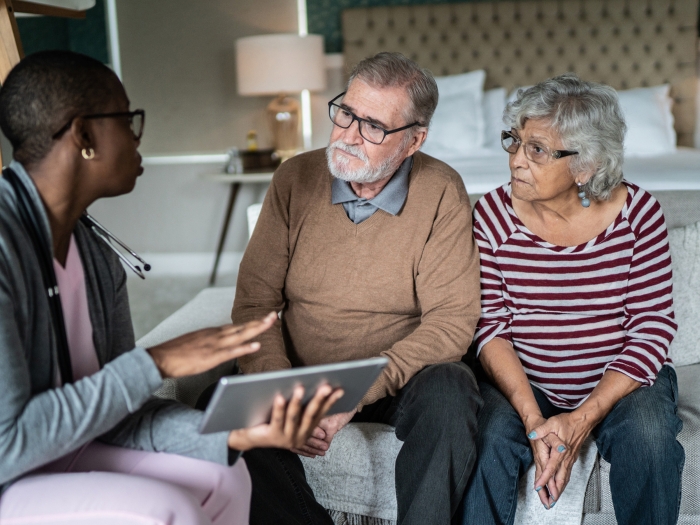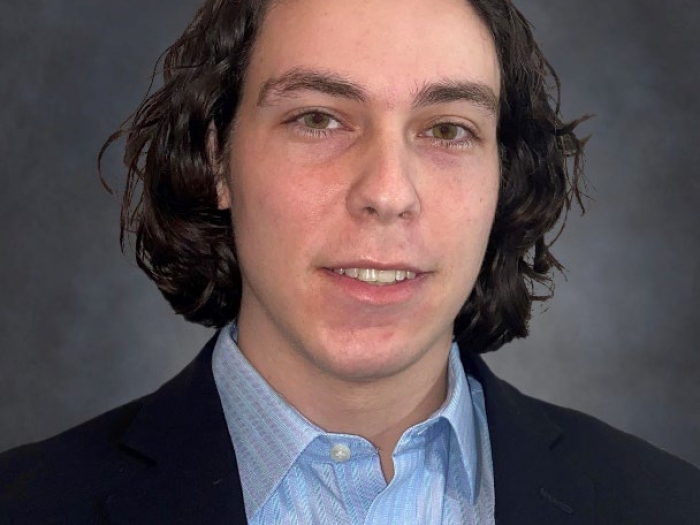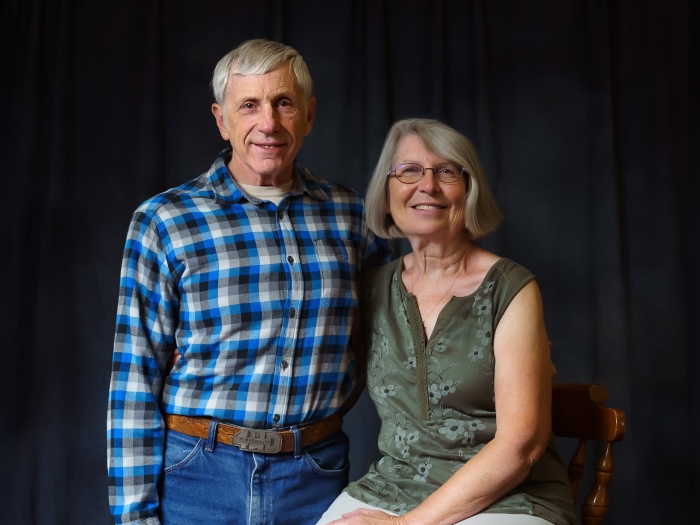
Explain what motivated you to apply for the M-SURE Program.
I worked with my mentor, Dr. Nadejda Bozadjieva Kramer, through the Undergraduate Research Opportunity Program (UROP) here at the University of Michigan last year. When she sent me information about this summer opportunity, I was eager to apply with her encouragement and support. It was the perfect chance for me to fully immerse in a research project, while also gaining knowledge about the field of biomedical research as a whole and learn more about graduate school options for medical researchers. I was excited by the idea of having my own project, where I would have the opportunity to develop skills in clinical research, such as experimental design, data collection and analysis, and effective presentation skills with the support of a mentor. Lastly, the prospect of attending the weekly lecture series presentations that promised deeper insights into the physiology behind our research, as well as information about graduate school that other summer research experiences didn’t explicitly offer, was greatly motivating as well.
Describe the question or problem your project was trying to solve.
With the rise of obesity and metabolic diseases, finding safe and effective weight loss methods becomes increasingly crucial. In my project, we explored the impact of the ketogenic diet on metabolic mechanisms in the gut using mice models. We did so by evaluating the fat of ketogenic diet insulin function and body weight loss. We collected and analyzed data including body weight, pancreas weight, glucose levels, and ketone levels to better understand the diet’s effects and the underlying metabolic processes involved.
What was the most exciting or surprising thing you learned from this experience?
The most exciting and surprising aspect of this experience was discovering the profound impact diet can have on gut metabolism and overall health. I was truly astonished by the significant changes in metabolic markers observed in mice due merely to dietary interventions. This revelation highlighted the potential of using diet to manage metabolic diseases and sparked my desire to continue this work even more. The program also allowed me to explore a wide range of research beyond my own project. I had the opportunity to learn about the innovative work and goals of various labs, and as a fellow in the M-SURE program, I attended seminars on diverse topics such as pancreatic cancer and the neuroscience of sleep. These experiences left me eager to further explore these subjects and appreciate the breadth of fascinating research being conducted at the university.
What was the best part of working with a faculty mentor?
The best part of working with a faculty mentor is without a doubt the relationship that you build with them. Having a mentor who is not only knowledgeable, but also supportive and invested in your growth makes a huge difference. They help guide you, provide plenty of feedback and encouragement, and help you develop both professionally and personally. Specifically, Dr. Kramer occasionally took me and other undergraduate students out to lunch, highlighting the importance of building strong, personal connections and fostering a collaborative environment.
What are your goals moving forward?
Moving forward, I plan to attend graduate school and dedicate myself to science. I have always loved learning about how things work, specifically in the human body, and this program has helped me develop confidence that this is the right path for me. I plan to continue my research education with Dr. Kramer throughout my undergraduate experience, and I am excited to connect all that I have learned throughout this program to my advanced courses in the next two years. I also hope to find a similar program next summer so that I am prepared for even more advanced research opportunities as they come along.
How did this program help you develop or prepare you for your next step?
This program allowed me to practice necessary research skills, but I also learned many additional skills, such as communication, critical thinking, and time management. Through the process of conducting experiments, I came to understand the importance of patience and the meticulous nature of scientific observation. These skills are crucial for achieving accurate and reliable results and will be invaluable to me as I move forward. Overall, the program helped prepare me for future opportunities in research and medicine. It also provided me with a deeper understanding of the research process, and how to navigate this complex pathway successfully. Most importantly, it taught me the significance of collaboration. Through seminars, presentations, and luncheons, I was able to connect and network with faculty, post-docs, and other undergraduate students, which has broadened my perspective and enriched my academic experience. These interactions not only enhanced by communication skills but also highlighted the value of teamwork and diverse viewpoints in scientific knowledge.
What advice would you have for someone interested in getting more research experience?
Research will provide you with essential skills that you’ll use in many aspects of life, and you might be surprised by what you find that excites and motivates you. I encourage you to actively seek out various opportunities, even if they don’t seem to fit your initial interests. Stepping out of your comfort zone will help you see the many facets of research. Do not be afraid to reach out to potential mentors. Stay curious and open-minded, and don’t hesitate to ask questions. Also, build relationships with your mentor and others in your lab, as these connections can significantly enhance your growth and success in the field. While research can be challenging, it’s also incredibly rewarding. Building a strong foundation in research early on will serve you well no matter where your career takes you.
Caswell Diabetes Institute's (CDI) mission is to support rigorous science and its integration with patient-centered clinical care, leading the way to prevent, treat, and cure diabetes, its complications, and related metabolic diseases. Supporting scholars and scholarship is one of the shared objectives M-SURE and CDI have to achieve this mission.

Assistant Professor
